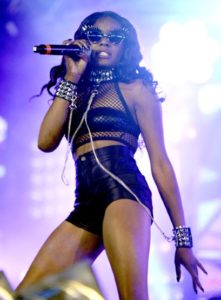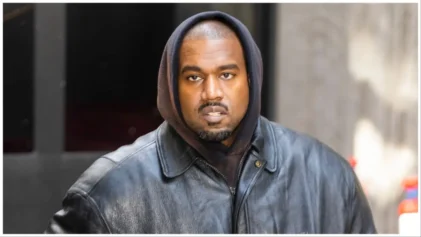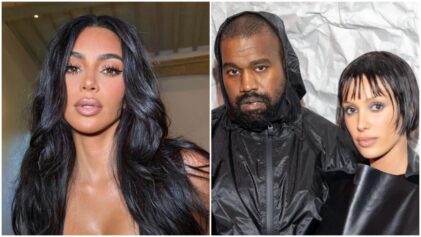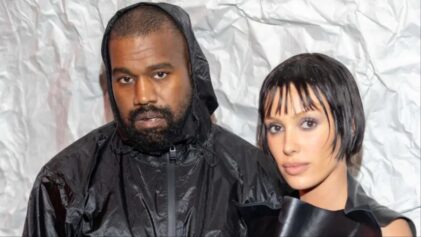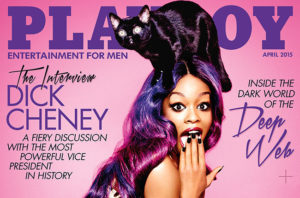
Those were the less shocking claims from the rapper who has made her feelings about race issues in America well known in the recent past.
What was more surprising was her fearless decision to go after hip hop heavyweights like Kanye West and Kendrick Lamar in the process.
As much as Banks may have exposed some good points about America’s racist roots and current issues with discrimination, however, another headline about Banks’ comments draws attention to the fact that there is still one platform where Banks doesn’t seem so adamant about boldly discussing reparations, poverty and Jim Crow Laws: her own music.
Banks delivered on her portrayal of a purple-haired sex kitten for Playboy’s April cover, but the rapper’s interview was the only thing that could snatch people’s attention away from her sensual look.
To no surprise, she touched on racism in America and discussed the way she is frequently attacked for sharing her opinions on social media.
“It’s always about race,” she said during the interview. “Lorde can run her mouth and talk shit about all these other b*****s, but y’all aren’t saying she’s angry. If I have something to say, I get pushed into the corner…y’all motherf*****s still owe me reparations! That’s why it’s still about race.”
That’s when she added that the “generational effects of Jim Crow and poverty linger on” before saying she was ready to “get the f**k out” of America.
“I hate everything about this country,” she said. “Like, I hate fat white Americans. All the people who are crunched into the middle of America, the real fat and meat of America, are these racist conservative white people who live on their farms. Those little teenage girls who work at Kmart and have a racist grandma—that’s really America.”
It’s a statement that seems to be made out of sheer frustration but also overlooks the existence of racism in other countries as well. Although one could certainly argue that America is in the midst of a much more severe battle with racism.
Eventually, she named Jay-Z as one of the few Americans she admires before attacking Kanye West and Kendrick Lamar.
“In American society, the game is to be a nonthreatening Black person,” she continued. “That’s why you have Pharrell or Kendrick Lamar saying, ‘How can we expect people to respect us if we don’t respect ourselves?’ He’s playing that nonthreatening Black man s**t, and that gets all the white soccer moms going, ‘We love him.’”
She delivered a final blow to West by saying the rapper simply wants the “white world” to accept him.
As bold as the claims may be, Banks may not be too far from the truth.
West has made headlines for insisting racism is no longer a problem and even defending white people using the N-word.
But her comments in some ways could be a bit too extreme and, unfortunately, may work to completely overshadow the point Banks wanted to make.
Throughout the interview she embraced her “boisterous” personality and said it comes from her simply being a “proud” Black woman.
Perhaps the most unfortunate thing is that this interview, which delved into issues of racism, discrimination, poverty, the perception of Black women and more, was not only overshadowed by the brash delivery. It’s a host of conversations that have hardly made their way into Banks’ own music.
Hip hop music is consistently being devoured by both white and Black listeners and it could serve as a much more impactful platform for controversial conversations.
Ironically enough, Lamar is actually a key example of this.
While his comments about violence in the Black community may have sparked controversy, his track “The Blacker the Berry” elevated the conversation and garnered national attention.
His latest project To Pimp a Butterfly, is yet another compelling work of art that is garnering praise from major publications and bringing emotionally charged, racially charged and historically aware social commentary to the thousands, maybe millions, that will listen to Lamar’s album.
Unfortunately, the hip hop starlet who once made great points about cultural appropriation and reparations for the Black community has rarely expanded her own musical platform beyond proclaiming herself the top b***h or challenging “a b***h n***a.”
It could be the very reason why, much like her arch nemesis Iggy Azalea, she makes more headlines for her controversy than she does for her actual music.
